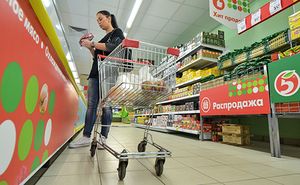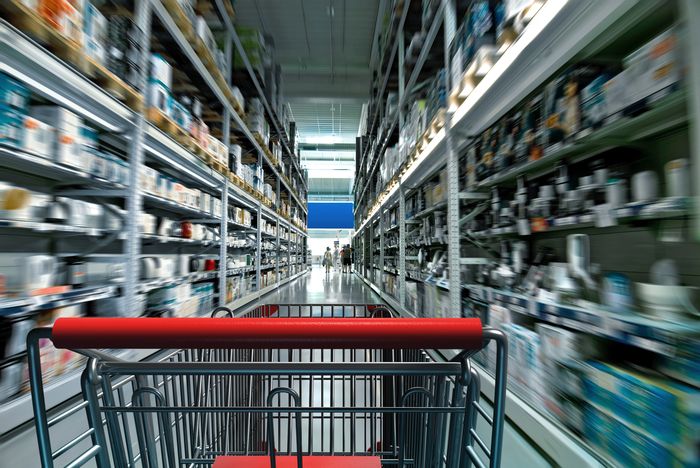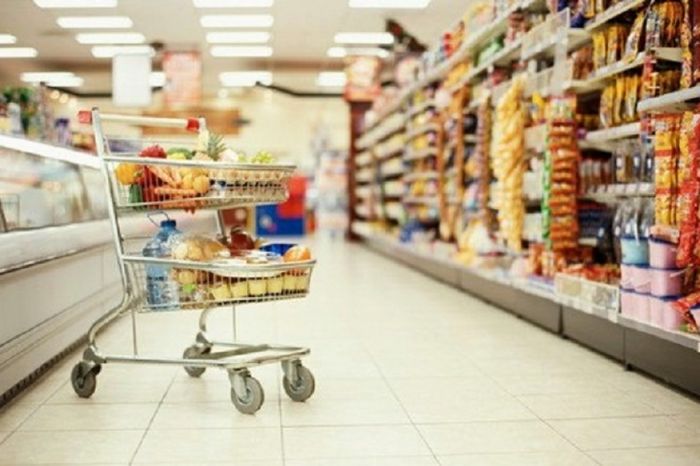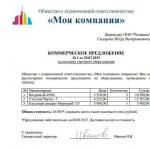Trade Law
Trade is a sector of the economy that needs regular control by the state.
In 2009, the State Duma of Russia adopted the law "On Trade", designed to make adjustments to relations between suppliers of goods, wholesale buyers and.
Over the past 7 years, the Russian economy has undergone significant changes, forcing market participants to act according to their own, sometimes far from the law, rules. In this regard, in the spring of 2016, a number of deputies of the State Duma, including Irina Yarovaya, submitted for consideration several amendments that could significantly change the current law "On Trade".
After reviewing the submitted documents and plans, the State Duma adopted the proposed amendments in the first reading.
Dear readers! The article talks about typical ways to solve legal issues, but each case is individual. If you want to know how solve exactly your problem- contact a consultant:
(Moscow)
(St. Petersburg)
(Regions)
It's fast and for free!
The Federal Law "On Trade" of 2009 was adopted in order to improve the efficiency of state regulation of trading activities, delineate the powers of local and federal authorities in terms of trade, as well as protect the rights of legal entities and individual entrepreneurs engaged in trading activities.
 Scope of application law is limited to the territory of the Russian Federation, as well as the powers of specific subjects.
Scope of application law is limited to the territory of the Russian Federation, as well as the powers of specific subjects.
Thus, the provisions of the law are not applicable to foreign trade operations, operations carried out within the framework of small markets, activities related to the sale and purchase of securities, as well as trade in goods of limited circulation. The Law "On Trade" is not applicable to activities related to organized trading.
The main task The current law is to prevent the establishment of monopolies on trade, price increases, infringement of the rights of buyers and suppliers of goods.
New amendments to this law since 2016
Due to the fact that the current law infringes on the rights of manufacturers in many ways, attempts have been made to make significant adjustments to it, which have been successful only in recent months.
Among those accepted amendments special attention should be paid to:
- The amount of remuneration paid by suppliers. Among manufacturers of goods everywhere there is a lot of competition associated with a limited number of presentable outlets ready to put goods on sale. To reduce competition, suppliers go to all sorts of tricks, including giving retail outlets a 10% discount on each batch of goods sold. Naturally, 10% of the cost of the entire product is a lot. But manufacturers are forced to put up with a similar figure from year to year, otherwise the goods they supply will not be in demand among retailers and will find their buyer. The amendments adopted by the State Duma reduce the specified amount of the discount to 3%, including the cost of advertising the product and other expenses.
- Terms of payment for received and sold goods. The Law "On Trade" of 2009 did not clearly regulate the terms of payment by the retailer for the goods received. On average, the manufacturer received payment within the next 10, 20 and even 45 days after delivery, which in some cases had a negative impact on his financial situation. Thanks to the adopted amendments, this problem has been resolved to a greater extent. Legislators concluded that payment for perishable goods must be made no later than 5 days after their delivery. At the same time, the payment term for other goods was reduced to 20 calendar days.
The amendments made concern, first of all, essential goods and foodstuffs. With regard to household chemicals and goods that are not in demand, the same conditions remain as before. 
If you have not yet registered an organization, then the easiest this can be done using online services that will help you generate all the necessary documents for free: If you already have an organization and you are thinking about how to facilitate and automate accounting and reporting, then the following online services come to the rescue, which will completely replace an accountant at your plant and save a lot of money and time. All reporting is generated automatically, signed with an electronic signature and sent automatically online. It is ideal for an individual entrepreneur or LLC on the simplified tax system, UTII, PSN, TS, OSNO.
Everything happens in a few clicks, without queues and stress. Try it and you will be surprised how easy it got!
Practical application of the amendments
The practical application of the announced amendments to the law "On Trade" will not be slow to show itself. Starting from the time of their adoption, manufacturers of goods will have the opportunity to significantly save on the supply of goods to retail outlets.
 In addition, the FAS is instructed to monitor and prevent attempts to increase the discount on goods by wholesale buyers, which are wholesale and retail outlets. In the event of violations, retailers and wholesale buyers may lose the right to trade. As a measure of punishment, a fine in the amount of 2 to 5 million rubles is provided.
In addition, the FAS is instructed to monitor and prevent attempts to increase the discount on goods by wholesale buyers, which are wholesale and retail outlets. In the event of violations, retailers and wholesale buyers may lose the right to trade. As a measure of punishment, a fine in the amount of 2 to 5 million rubles is provided.
With regard to the implementation of the article regarding payment for the goods received, in practice it should look like this: the manufacturer distributes the goods to outlets and after 5-20 days receives payment without worrying about whether it is sold or not. In principle, this happened before, but manufacturers had to wait at least 30-45 days before they could be paid all the money, most of which went to pay for advertising services and placing goods on the shelves. The adoption of the amendments should change the existing situation, prevent the monopolization of prices by large retail outlets and protect the rights of not only the manufacturer, but also the consumer.
Consequences of innovations
Despite the obvious positive aspects of the amendments that have practically come into force, many manufacturers and wholesale buyers of goods tend to point out rather their negative aspects.
Thus, on the one hand, a reduction in discounts from 10% to 3% will have a beneficial effect on manufacturers, providing an opportunity for further growth in production, on the other hand, wholesale and retail commodity networks will suffer. The saved 10% was a reward that the trading network received for the timely fulfillment of the terms of the contract for the sale of goods. Part of this remuneration went to promotion, packaging and logistics.
According to the new bill, all listed expenses plus remuneration for sales should fit into 3%. It is likely that, having lost part of the profit, retail chains will try to make up for it by raising prices for goods. Another option may be to refuse to purchase essential goods in large quantities, instead household chemicals, pet products and products that this rule does not apply will be purchased.
With regard to the obligation to pay the cost of goods within the specified limited time, it should be understood that not all products received at the outlet manage to be sold within 5-20 days, which will force its owners to strive to purchase small consignments of goods.
 Thus, innovations can lead to ambiguous double consequences. Adopted to protect the rights of producers and consumers, they can lead the country to a food crisis, which is currently being discussed a lot among economists, legal entities and individual entrepreneurs.
Thus, innovations can lead to ambiguous double consequences. Adopted to protect the rights of producers and consumers, they can lead the country to a food crisis, which is currently being discussed a lot among economists, legal entities and individual entrepreneurs.
At some point, wholesale buyers of goods may become unprofitable for such transactions, and they will begin to look for new ways to purchase and sell products. In addition, this bill makes it impossible to spend huge amounts of money on product advertising, as a result of which the demand for it may change in a negative direction. So far this has not happened, but the new amendments have not yet fully entered into force, most likely, the main pros and cons of the decision will be visible closer to autumn, or even winter, when it is time to sell the harvested crop.
See the following video for the new amendments to this law:





